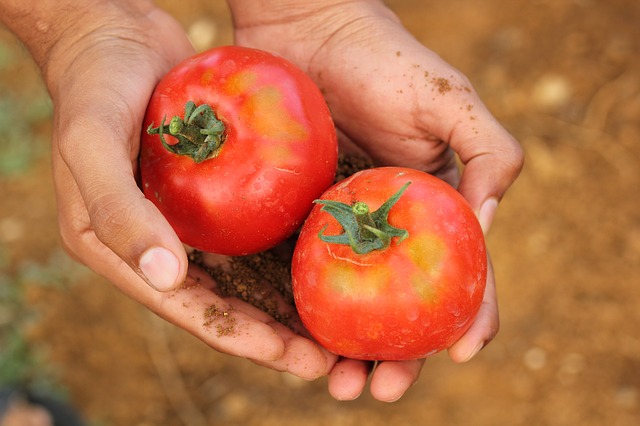The current system of farming that’s heavily reliant on artificial fertilizers, pesticides and herbicides isn’t a sustainable one. Even though these artificial additions bring more produce they also bring with them a ton of other disadvantages such as soil contamination, poisoning of ground water, contaminated food and so. The larger quantity of produce one gets from the use of such fertilizer and pesticides aren’t worth the risks on human life and bio diversity. That is why organic farming is a method of farming that’s been popularly discussed and implemented by many farmers. So, let us take a look at the benefits of organic farming and why it’s a great way to reduce the impacts of the current farming practices that are reliant on artificial stimulants.

Free of Poison:
Organic farming does not include the use of any artificial additives that can cause serious health issues if consumed. Most produce that is available today isn’t fully safe to consume as a lot of them have traces of the artificial fertilizers and pesticides that were sprayed on them during growth. These chemicals have adverse effects on the human body and can cause deadly diseases like cancer. Organic farming prevents this by foregoing all these poisonous additives and instead substituting them with organic manure and more sustainable methods of crop cultivation.
Healthier soil:
Spraying soil with artificial chemicals contaminates the soil and leaves the soil not able to thrive on its own. Crops grown in such soil also get contaminated. A research shows one teaspoon of soil that has organic compost in it has as much as 600 million to 1 billion helpful bacteria from across 15000 different species compared to soil that had artificial fertilizer sprayed on it which only had close to 100 helpful bacteria in one teaspoon. This makes a strong case as to why organic farming is needed to conserve our soil.
Helps combat soil erosion:
Organic farming not only helps maintain soil quality it also helps combat soil erosion. A study found that organically maintained farms had 8 more inches of top soil compared to farms that had chemically treated crops and soil.
Helps prevent global warming:
Organic farming helps prevent global warming by preventing the use of artificial fertilizers and pesticides. These chemical additives need a ton of fossil fuels to generate the energy that is used to produce them. By cutting down on the usage of such artificial fertilizers and pesticides one can also reduce the overall impact of global warming by bringing down the total amount of fossil fuels that are burnt.
Helps conserve the water:
Humans are fast running out of fresh water for their day to day use and the current farming methods contaminate water bodies. Rain that falls on soil that have been sprayed with chemicals gets contaminated by pesticides and the fertilizers. This rain water then either recedes into the ground and contaminates the ground water or washes away the chemicals which then joins larger water bodies such as rivers and lakes which in turn also contaminates these larger water bodies. Conventional farming methods also require more water to be used for the same amount of produce compared to organic methods. By completely avoiding these chemical additives organic farming helps conserve our water bodies and also reduces the overall amount of water used.
Helps conserve Animal welfare and health:
The water, air and soil contaminated by the use of chemicals in farming also affect the flora and fauna around us. Contaminated water affects aquatic organisms such as fish by affecting their health and in some cases leading to large scale deaths. The fish that live in this contaminated water when consumed by us also affects our health. Organic farming practices make sure that it is a friendly environment for animals, birds and other forms of life to coexist alongside farms and makes farms a friendly environment for all species to live in.
Prevents the Use of GMO’s:
Genetically modified organisms or GMO’s have grave dangers that come with their use. They also require a lot more resources than generally needed and are also linked with causing various types of cancer. GMO’s discourage crop rotation and opts for the growth of the same crop over and over leaving the soil unfit for further cultivation over time. Organic farming explicitly avoids the use of these GMO’s and this makes sure that your food is safe.
Better and Cheaper food:
Even though the costs upfront seem to be high, overtime organic farming becomes cheaper as it doesn’t require expensive artificial fertilizers, pesticides or herbicides and GM seeds. Food produce from organic methods also has more nutrients and even has a better taste compared to food cultivated through conventional methods.
Nice information!